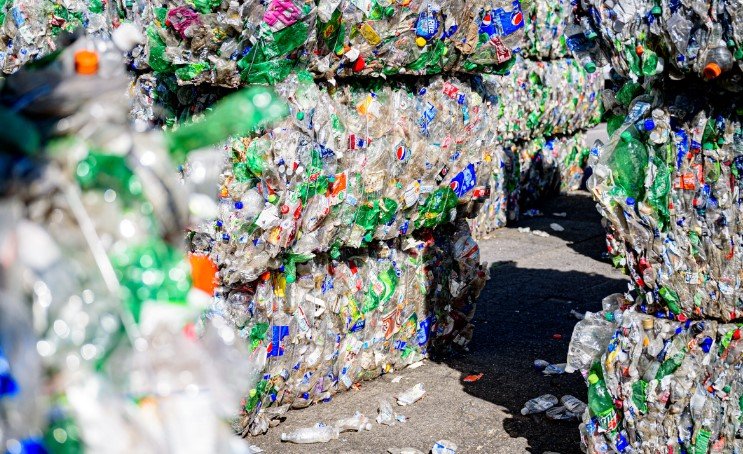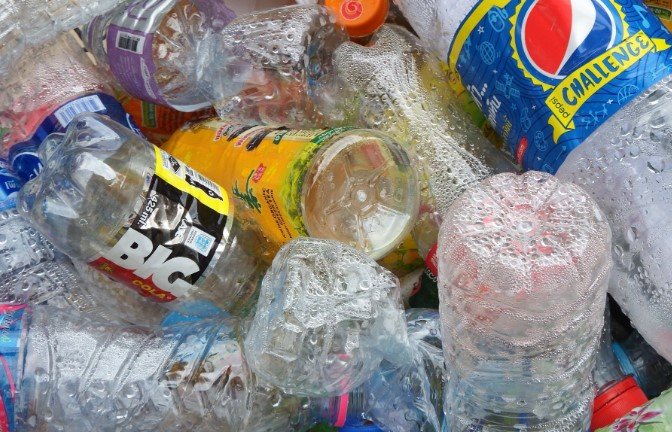Plastics are everywhere. They are in our bottles, bags, clothes, toys, and even in our food and water. They are also a major source of pollution, waste, and greenhouse gas emissions.

Plastics: The Fossil Fuel Industry’s Lifeline
Plastics are made from fossil fuels, such as oil and natural gas. As the world shifts to renewable energy and electric vehicles, the fossil fuel industry sees plastics as its plan B to maintain its profits and power Plastics are set to drive nearly half of oil demand growth by midcentury, according to the International Energy Agency.
The fossil fuel industry is investing billions of dollars in expanding plastics production, especially in the United States, the Middle East, and ChinaMajor corporations, from chemical companies to consumer brands, have a vested interest in perpetuating plastic production. They also spend millions every year lobbying to block regulatory efforts to limit the harms of plastics.

Plastics: The Climate Crisis’ Accelerator
Plastic production is interlocked with the climate crisis. The extraction, refining, and processing of fossil fuels into plastics emit huge amounts of greenhouse gases. Plastics account for about 6% of global oil consumption and are expected to rise to 20% by 2050.
Plastics also contribute to global warming when they are disposed of. Most plastics end up in landfills, incinerators, or the environment, where they release more greenhouse gases as they degrade. Only 9% of all plastic ever made has been recycled. Plastic waste also saturates our oceans, where it harms marine life and ecosystems.
Plastics: The Environmental Injustice’s Perpetrator
Plastic production is also a source of environmental injustice. Refineries and petrochemical facilities that turn crude oil and natural gas into polymers to make plastic are concentrated in poor communities and communities of color, especially along the Texas and Louisiana Gulf Coasts. These communities face elevated threats of cancer and respiratory diseases from the toxic chemicals and air pollution emitted by these facilities.
“These are toxic chemicals they use,” John Beard Jr., a resident of Port Arthur, Texas, and founder of the Port Arthur Community Action Network, told Truthout. “We’re poisoning ourselves with more and more pollution. This has to stop.
Plastics also affect the health and livelihoods of people in the developing world, where much of the plastic waste from the developed world is dumped or exported. These countries lack the infrastructure and resources to manage the plastic waste, which often ends up in open dumps, rivers, or the ocean. Plastic waste also poses risks of fire, flooding, and disease outbreaks.
Plastics: The Global Challenge’s Opportunity
The plastics crisis is a global challenge that requires urgent and collective action. Many solutions can help reduce the demand, production, and consumption of plastics, such as:
- Banning or taxing single-use plastics, such as bags, bottles, straws, and cups.
- Promoting reusable, biodegradable, or recycled alternatives to plastics.
- Supporting circular economy models that minimize waste and maximize resource efficiency.
- Holding corporations accountable for the environmental and social impacts of their products.
- Empowering communities to resist and challenge the fossil fuel and plastics industries.
- Educating consumers and raising awareness about the hidden costs of plastics.
Plastics are not the inevitable outcome of human progress. They are the result of a system that prioritizes profits over people and the planet. By changing this system, we can create a more sustainable, equitable, and healthy future for ourselves and generations to come.






